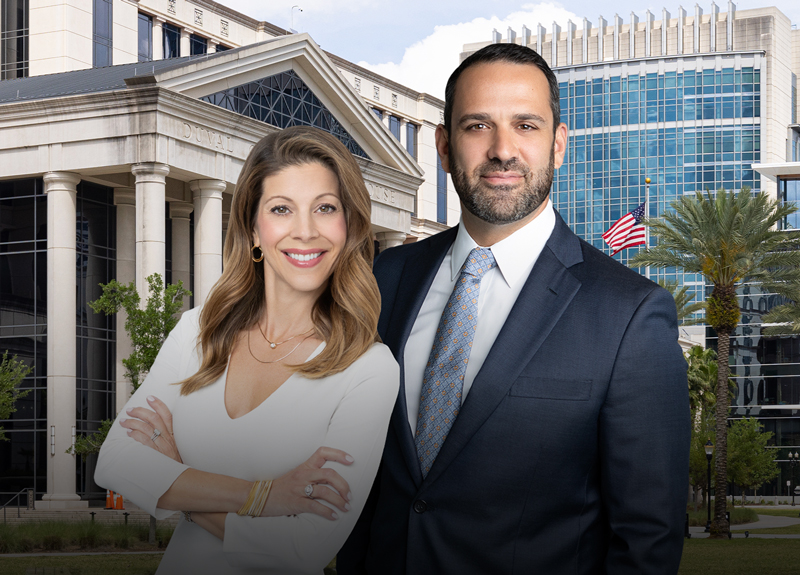What Is the Difference Between Lawyer and Attorney?
If you have never dealt with the American legal system, you might wonder about the difference between a lawyer and an attorney. While there may have been a historical difference between the two terms, now, the terms lawyer and attorney both refer the same thing.
The use of “lawyer,” “attorney,” or even “counselor” is a matter of personal choice. These professionals provide legal representation for everything from car accidents and slip and falls to breaches of contract and criminal charges. Regardless of how they describe themselves, professionals who provide these legal services receive the same education and meet the same licensing requirements.
Here are some of the steps someone must take to become a lawyer or attorney.
How to Get a Law License in Florida
The Florida Supreme Court has the authority to regulate admission to the practice of law in Florida. The court has delegated this function to two separate entities:
Florida Board of Bar Examiners
The Florida Board of Bar Examiners promulgates the rules for applicants who want to practice law in the state.
If an applicant meets all of the requirements, the applicant has the right to:
- Appear in court and before regulatory agencies
- Provide legal advice and counsel
- Represent clients in legal matters
- Prepare legal documents
- Negotiate legal transactions on behalf of clients
People admitted to the practice of law can hold themselves out as attorneys, lawyers, or counselors at law.
However, people not admitted to the practice of law cannot hold themselves out as attorneys, lawyers, counselors, or even use “Esq.” after their name. In Florida, presenting yourself as a lawyer without holding a law license can result in a third-degree felony charge, punishable by a prison term of up to five years.
Applicants to practice law must meet several requirements. The three main requirements include:
- A law degree from an accredited law school
- A passing score on the Florida bar examination
- Proof of good character and moral fitness
The first two requirements are self-explanatory. The third requirement means that applicants cannot have anything in their personal or professional backgrounds that might indicate a risk to clients.
Some factors that the board can use to block admission on character and fitness grounds include:
- Criminal record
- Professional or academic misconduct
- Mental or emotional illness
- Alcohol or drug abuse
- Bankruptcy
Applicants can meet the character and fitness requirement despite having a checkered past if they can show they have overcome their issues.
The Florida Bar
The Florida Bar administers the ethical rules that govern lawyers after they earn their law licenses. These rules, called the Rules Regulating the Florida Bar, set out the ethical guidelines for practicing law.
The rules include how a lawyer can, or cannot, handle:
- Advertising
- Fees
- Client property
- Client confidential information
Relevant to this topic, a lawyer cannot use misleading advertising. This includes advertising in Florida if the lawyer does not have a license to practice law in the state. Thus, a lawyer admitted only in Georgia cannot advertise as a lawyer or attorney in Florida to get Florida clients for Florida cases.
If a lawyer violates the ethical rules, the bar can investigate the violation and recommend that the Florida Supreme Court discipline the lawyer. Discipline can include suspension or disbarment.
A suspended lawyer must cease using the terms lawyer, attorney, or counselor at law during the suspension. A disbarred lawyer cannot use those terms unless they successfully apply for readmission to the bar.
The Meaning of Lawyer, Attorney, and Counselor at Law
Florida law carefully regulates the terms “lawyer,” “attorney,” and “counselor at law.” As a result, you have a reasonable expectation that those who hold themselves out as attorneys or lawyers will have the qualifications to provide legal services.
You will know that they passed the bar exam and have good character and moral fitness to represent you.
In short, the information conveyed by the terms “lawyer” and “attorney” lays the groundwork for the trusted relationship between a lawyer and a client.
Contact the Jacksonville Personal Injury Law Firm of Baggett Law Personal Injury Lawyers Today For Help
For more information, please contact the Jacksonville and Ponte Vedra personal injury law firm of Baggett Law Personal Injury Lawyers at the nearest location to schedule a free consultation today.
We serve in Duval County, St, Johns County, and its surrounding areas:
Baggett Law Personal Injury Lawyers – Jacksonville
9471 Baymeadows Rd #105,
Jacksonville, FL 32256, United States
(904) 396-1100
Baggett Law Personal Injury Lawyers – Downtown Jacksonville
121 W Forsyth St Suite 1000,
Jacksonville, FL 32202
(904) 822-4225
Baggett Law Personal Injury Lawyers – Ponte Vedra
480 Town Plaza Ave #130,
Ponte Vedra Beach, FL 32081
(904) 675-1167

